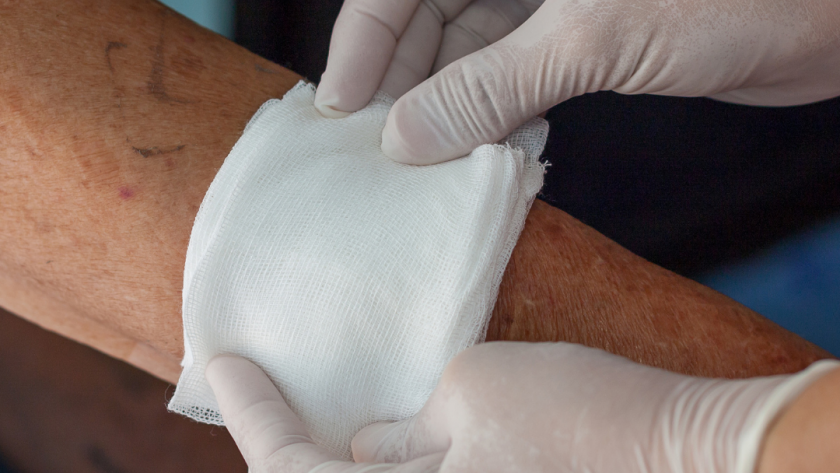When you suffer from surgical wound complications, as well as complicated, sluggish, or non-healing wounds, it can have a long-term impact on your daily life. If you or a beloved one has been contemplating wound care treatment to improve their quality of life, consider getting specialized care for a faster and more effective recovery. Allison Burkett, MD, FACS of Middle Georgia Vascular Surgery Center & Vein Solutions, provides empathetic care and tailored treatment strategies to address slow or non-healing wounds. For wound care in Warner Robins, Georgia, call or book an appointment online right away.
What Exactly Is Wound Care?
Wound care is a tailored specialty of medicine that concentrates on managing complicated, slow, or non-healing skin and soft tissue wounds. Dr. Burkett and the Middle Georgia Vascular Surgery Center & Vein Solutions staff are experts in treating:
- Ulcers
- Vein issues
- Diabetic ulcers
- Chronic venous ulcers
- Peripheral arterial disease (PAD) wounds
- Venous leg sores
- Surgical wound complications
Employing tailored care plans, the Middle Georgia Vascular Surgery Center & Vein Solutions staff helps manage and control intricate wounds that could result in serious problems.
What Are The Risks Associated With Non-Healing Wounds?
If a wound is not healing or is contaminated, wound care is required to avoid problems like:
- Chronic or serious pain
- Tissue degeneration
- Loss of mobility or function
- Amputation
- Cellulitis (infection in neighboring tissues)
- Osteomyelitis (infection in the underlying bone)
- Sepsis (infection in the blood)
Early diagnosis and care of complex wounds could assist you in avoiding these issues and getting back to feeling better.
Is it Necessary For You to Take Care of Your Wounds?
If your wound is reluctant to heal, does not heal at all, or is infected, you might require wound care.
You might be at a greater risk of extensive, slow-healing, or non-healing wounds if you:
- Smoke
- Are overweight
- Are bedridden or confined to a wheelchair
- Have a problem with circulation
- Have poor nutrition
- Abuse drugs or alcohol
- Have a reduced range of motion
- Having a weakened immune system
You are more likely to get intricate wounds if you suffer from peripheral arterial disease (PAD), diabetes, human immunodeficiency virus (HIV), or circulation problems.
What To Expect With Wound Care?
At your initial visit to Middle Georgia Vascular Surgery Center & Vein Solutions, Dr. Burkett conducts a full health history and evaluates your wound. She then measures your temperature and remarks on your wound in great detail and might request additional diagnostic tests such as wound cultures.
Dr. Burkett then creates a care plan specifically for you and your wound kind. Patients could benefit from one or more of the following:
- Medications applied to the skin
- Injected or oral antibiotics
- Specialized dressings
- Excision of dead tissue
- Nutritional advice
- Skin grafts
- Compression therapy
Dr. Burkett and the wound care staff will also provide you with guidelines for at-home treatment.
You should not downplay the effect chronic wounds could have on your overall health and life quality. For a consultation about your complex, slow-healing, or non-healing wound, contact Middle Georgia Vascular Surgery Center & Vein Solutions through mobile or book online.



